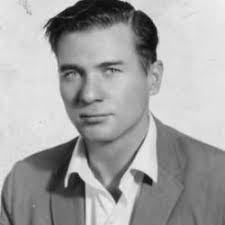
Writers often mine their own families for material because the well is so deep. This is especially true of memoirists—even more so if their childhood was miserable due to whatever reason (the more reasons, the better for sales).
But what about happy family material? And using your kids, vs. your parents, as creative inspiration?
One poet apt at this was Vermont’s Galway Kinnell. His eye-catching title, “After Making Love We Hear Footsteps,” leads into a poem that touches on both innocence and mortality, all in one fell swoop. It’s audacity like this that makes poetry worth reading, no?
And although I prefer the “Footsteps” poem, more famous of Kinnell’s poems about his son is the alliteratively-titled “Fergus Falling.” From a tree, if you must know.
Here’s both. Which do you prefer?
After Making Love We Hear Footsteps
Galway Kinnell
For I can snore like a bullhorn
or play loud music
or sit up talking with any reasonably sober Irishman
and Fergus will only sink deeper
into his dreamless sleep, which goes by all in one flash,
but let there be that heavy breathing
or a stifled come-cry anywhere in the house
and he will wrench himself awake
and make for it on the run—as now, we lie together,
after making love, quiet, touching along the length of our bodies,
familiar touch of the long-married,
and he appears—in his baseball pajamas, it happens,
the neck opening so small he has to screw them on—
and flops down between us and hugs us and snuggles himself to sleep,
his face gleaming with satisfaction at being this very child.
In the half darkness we look at each other
and smile
and touch arms across this little, startlingly muscled body—
this one whom habit of memory propels to the ground of his making,
sleeper only the mortal sounds can sing awake,
this blessing love gives again into our arms.
Fergus Falling
Galway Kinnell
He climbed to the top
of one of those million white pines
set out across the emptying pastures
of the fifties – some program to enrich the rich
and rebuke the forefathers
who cleared it all at once with ox and axe –
climbed to the top, probably to get out
of the shadow
not of those forefathers but of this father
and saw for the first time
down in its valley, Bruce Pond, giving off
its little steam in the afternoon,
pond where Clarence Akley came on Sunday mornings to cut down
the cedars around the shore, I’d sometimes hear the slow spondees
of his work, he’s gone,
where Milton Norway came up behind me while I was fishing and
stood awhile before I knew he was there, he’s the one who put the
cedar shingles on the house, some have curled or split, a few have
blown off, he’s gone,
where Gus Newland logged in the cold snap of ’58, the only man will-
ing to go into those woods that never got warmer than ten below,
he’s gone,
pond where two wards of the state wandered on Halloween, the Na-
tional Guard searched for them in November, in vain, the next fall a
hunter found their skeletons huddled together, in vain, they’re
gone,
pond where an old fisherman in a rowboat sits, drowning hooked
worms, when he goes he’s replaced and is never gone,
and when Fergus
saw the pond for the first time
in the clear evening, saw its oldness down there
in its old place in the valley, he became heavier suddenly
in his bones
the way fledglings do just before they fly,
and the soft pine cracked.
I would not have heard his cry
if my electric saw had been working,
its carbide teeth speeding through the bland spruce of our time, or
burning
black arcs into some scavenged hemlock plank,
like dark circles under eyes
when the brain thinks too close to the skin,
but I was sawing by hand and I heard that cry
as though he were attacked; we ran out,
when we bent over him he said, “Galway, Inés, I saw a pond!”
His face went gray, his eyes fluttered close a frightening
moment.
Yes – a pond
that lets off its mist
on clear afternoons of August, in that valley
to which many have come, for their reasons,
from which many have gone, a few for their reasons, most not,
where even now and old fisherman only the pinetops can see
sits in the dry gray wood of his rowboat, waiting for pickerel.
